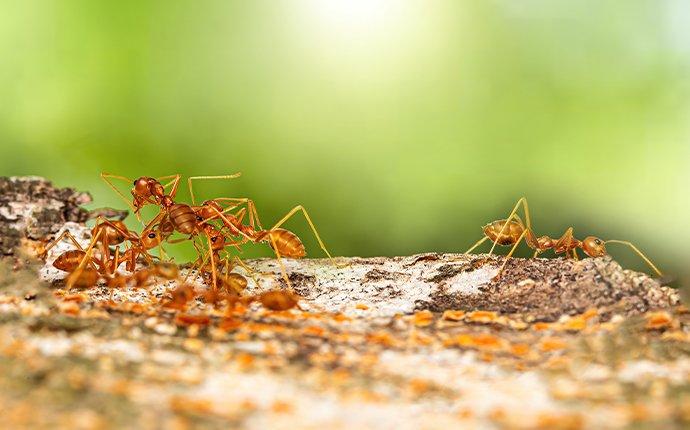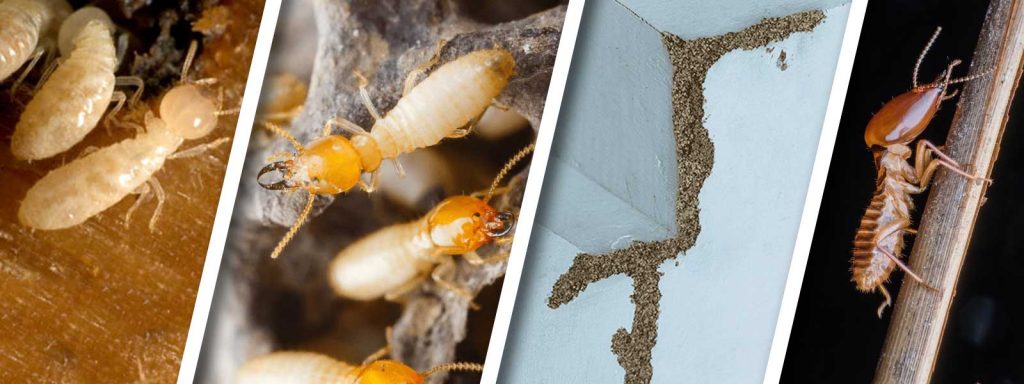Top Ant Control Services: Trusted Solutions for Your Home or Service
Top Ant Control Services: Trusted Solutions for Your Home or Service
Blog Article
Environmental Influence of Bug Control: Harmonizing Efficiency With Sustainability
The environmental effect of parasite control is a vital problem that calls for a fragile equilibrium in between attaining effectiveness in making certain and taking care of insects sustainability of our ecological communities. From the usage of harmful chemicals that seep right into our soil and water to the unexpected repercussions on non-target varieties, the effects of standard pest control practices are far-reaching.
Damaging Chemicals in Insect Control
The usage of damaging chemicals in bug control poses substantial ecological and wellness dangers that require mindful factor to consider and reduction approaches. Pesticides, chemicals, and herbicides are commonly made use of to eradicate parasites, but their prevalent application can cause unexpected repercussions. These chemicals can contaminate soil, water sources, and the air, influencing not only the targeted pests yet additionally helpful insects, wild animals, and people.

To attend to these threats, integrated pest management (IPM) techniques are being advertised as a much more lasting choice. IPM includes a combination of approaches such as biological control, environment adjustment, and the targeted use pesticides as a last resource (ant control huntersville nc). By taking on a holistic method to pest control, we can lessen the ecological and health effects related to harmful chemicals while efficiently taking care of pest populations
Effect On Non-Target Types
Thinking about the unintended consequences of pest control techniques, the influence on non-target varieties is a vital aspect that needs extensive evaluation. While parasite control procedures intend to target particular pests, other organisms in the ecosystem may be accidentally impacted. Non-target species, including valuable pests, birds, mammals, and also plants, can suffer indirect or straight injury from chemical applications or organic control techniques.
Pesticides can have deadly or sub-lethal effects on non-target species. Pesticides made to combat a specific bug parasite might harm pollinators like or natural killers such as ladybugs. Additionally, chemical residues can accumulate in the atmosphere, influencing non-target organisms in time. In a similar way, organic control agents, otherwise species-specific, can pose risks to unplanned targets, disrupting the ecological equilibrium.
To reduce the influence on non-target types, incorporated parasite management (IPM) strategies that emphasize a holistic method to pest control are recommended. These techniques prioritize using eco-friendly methods, reducing damage to useful microorganisms while effectively taking care of pest populations. Carrying out comprehensive danger evaluations and checking the results of bug control initiatives are necessary actions in securing non-target types and promoting total ecological community health.
Dirt and Water Contamination
Unplanned environmental effects of insect control approaches expand beyond affecting non-target species, with substantial effects for soil and water contamination - termite control services. Pesticides, herbicides, and chemical fertilizers used in parasite control can seep right into the soil and pollute groundwater, posing a hazard to both water and terrestrial ecological communities.
Water contamination is one more vital issue associated with bug control techniques. To alleviate soil and water contamination from insect control activities, integrated parasite administration strategies that prioritize sustainability and lessen chemical inputs are vital.
Air Air Pollution From Chemical Use
Direct exposure to air-borne chemicals during agricultural applications presents a considerable problem for air contamination control measures. They can volatilize right into the air and kind unstable organic substances (VOCs) and various other airborne toxins when pesticides are splashed onto crops - termite control services. These chemicals can add to the formation of ground-level ozone, a major element of smog that can have destructive impacts on human health, plant efficiency, and total air high quality. In addition, pesticide drift, where chemicals are carried by the wind to unplanned locations, can lead to the contamination of close-by ecosystems and water bodies.

Strategies for Sustainable Insect Control
In the world of agricultural methods, carrying out lasting parasite control approaches is vital for keeping eco-friendly balance and safeguarding crop yields. Sustainable pest control stresses making use of eco-friendly methods to manage pest populations successfully while decreasing injury to non-target microorganisms and ecological communities. Integrated Parasite Monitoring (IPM) is an extensively adopted method that integrates biological, cultural, physical, and chemical control approaches to attain lasting bug monitoring remedies.
Crop rotation and diversification are likewise effective methods to disrupt pest life cycles and produce much less positive problems for insects to thrive. Ultimately, by incorporating these sustainable bug control strategies, farmers can accomplish an equilibrium between pest monitoring effectiveness and ecological stewardship.
Verdict
To conclude, the ecological influence of insect control techniques have to be very carefully taken into consideration to stabilize efficiency with sustainability. Harmful chemicals utilized in parasite control can lead to soil and water contamination, air contamination, and injury non-target varieties - termite control services. It is important to apply lasting pest control techniques to lessen these adverse results on the setting and advertise a healthier community for future generations
By embracing an all natural technique to pest control, we can decrease the environmental and health impacts associated with damaging chemicals while successfully taking care of pest populaces.

To mitigate the air contamination triggered by chemical use, it is necessary to adopt incorporated parasite administration approaches that prioritize the use of non-chemical bug control approaches, such as crop turning, all-natural predators, and resistant plant selections. Sustainable insect control stresses the usage of environmentally pleasant approaches to manage insect populaces effectively while lessening damage to non-target microorganisms and ecological communities. Integrated Parasite Administration (IPM) is an extensively taken on strategy that combines biological, social, physical, and chemical control techniques to attain long-term pest management remedies.
Report this page